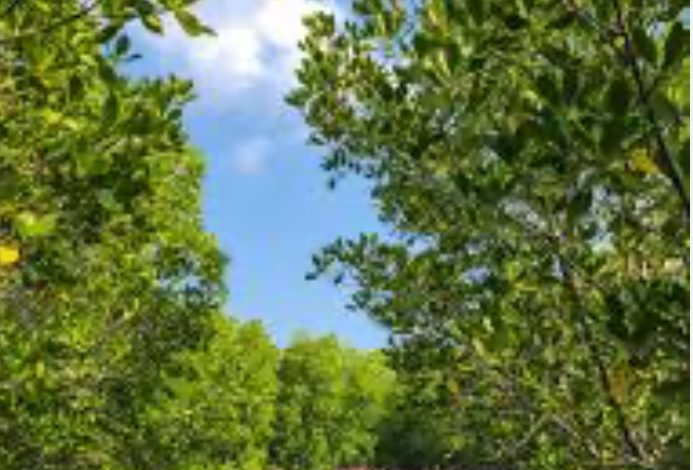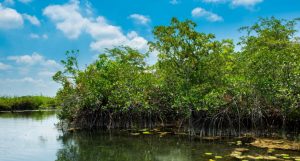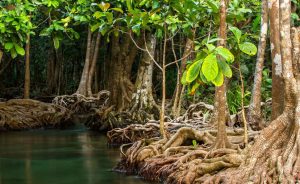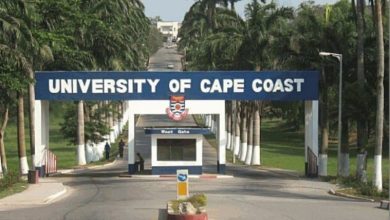
It is not by coincidence that mangroves grow around water bodies but naturally, mangroves are said to protect water bodies, including; the sea, rivers and lakes among others.
Cutting down mangroves for domestic or commercial use is like cutting short Human life.
The adage; “when the last tree dies, the last man dies” and “water is life” couldn’t had been put better.
Empirically tested methods have proven that mangroves act as natural buffers against coastal erosion, storms and floods, while also supporting biodiversity and fisheries.

They are incredibly valuable carbon sinks and help maintain water quality, according to a study.
A research conducted by ‘Hen Mpoano’, a non-profit organization dedicated to the sustainable management of Ghana’s coastal and marine ecosystems , stated that “mangroves are salt-tolerant and grow where land and water meet”.
“While they may appear as simple muddy forests, mangroves are a home to a wealth of biodiversity and provide numerous ecological, economic, and social benefits”, Hen Mpoano indicated.
Explaining the research findings to the Journalists for Responsible Fisheries and Environment at a workshop in Cape Coast, Speakers, including, the Programmes Manager of Hen Mpoano, Justice Camillus Mensah indicated that mangroves are under increasing pressure from human activities, such as deforestation, land conversion for agriculture and urbanization.

”Despite covering less than one percent (1%) of the earth’s surface, mangrove forests store significant amounts of carbon in both above-ground biomass (leaves, branches, trunks and roots) and soil. However, the destruction of mangrove habitats release large quantities of stored carbon into the atmosphere”, Mr Mensah disclosed.
He further revealed that “one of the most distinctive features of mangroves is their root systems, which enable them to withstand the dynamic forces of coastal tides and waves”.
”These roots trap sediments and filter pollutants to improve water quality and preserve marine habitats”.
Research has shown that mangrove forests provide essential feeding grounds for fish species and are linked to higher fish abundance.

”Therefore, effective policies prioritizing mangrove conservation are critical for maintaining mangrove ecosystem services and benefits, while assuring a sustainable future for seafood systems”, Hen Mpoano concluded.
The organization thus called for the implementation of strict regulations to halt mangrove deforestation, particularly, in regions facing significant over-exploitation and increase investment to upscale mangrove restoration initiatives across Ghana’s coastal landscape.























